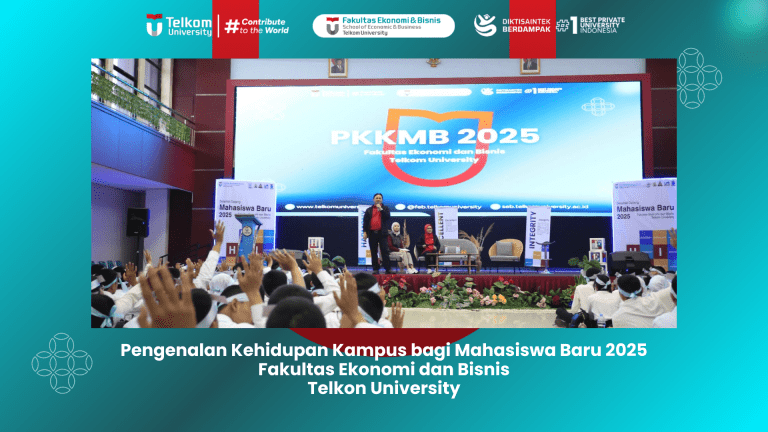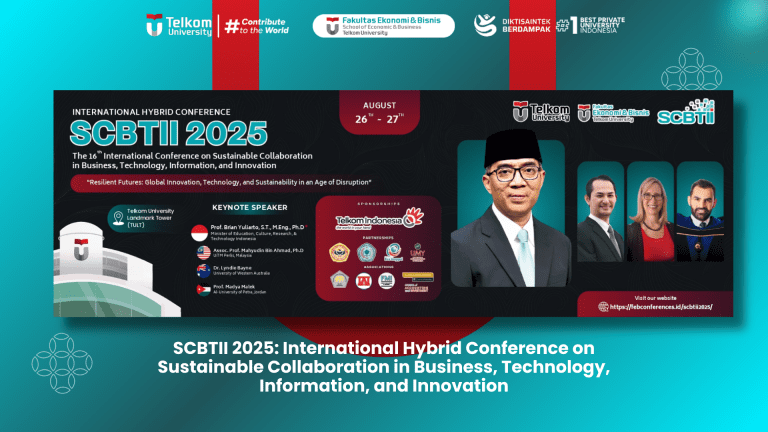Benefits and challenges of working from home: an economic and business perspective
Working from home has become an increasingly widespread phenomenon, especially after the COVID-19 pandemic changed the way many companies operate. While there are many advantages offered by this working model, the challenges that arise also need to be considered. This article will discuss the benefits and challenges of working from home from an economic and business perspective, as well as how education at Telkom University’s Faculty of Economics and Business plays a role in preparing professionals to face the changing dynamics of work.
Advantages of working from home
Time flexibility
- Work-life balance: working from home allows employees to manage their working time more flexibly, making it easier for them to achieve a work-life balance.
- Increased productivity: several studies have shown that employees who work from home tend to be more productive as they can work in a more comfortable and less distracting environment.
Cost savings
- Reduced transportation and meal costs: by working from home, employees do not have to spend on transportation or eating out, which can significantly reduce daily expenses.
- Reduced company operating costs: for companies, this working model can reduce operating costs such as office rent, utilities, and equipment.
Increased job satisfaction
- Customized work environment: employees can create a workspace that suits their personal preferences, which can increase work comfort and satisfaction.
- Greater autonomy: working from home often gives employees more freedom in organizing their tasks and responsibilities, which can increase motivation and engagement.
Challenges of working from home
Lack of social interaction
- Isolation and impact on mental health: lack of direct interaction with coworkers can lead to feelings of isolation, which negatively impacts mental health.
- Challenges in collaboration: while technological advances support remote communication, collaboration is often more successful when done face-to-face.
Difficulty in separating work from personal life
- Tendency to overwork: with no physical boundaries between work and home, some employees may find it difficult to stop work activities, which can lead to burnout and reduced quality of life.
- Distractions in the home environment: the home atmosphere can be filled with various distractions, such as the presence of family members or household tasks, which can interfere with focus.
Limited technology infrastructure
- Inconsistent connection: working from home relies heavily on a stable internet connection, which is not always guaranteed in every location.
- Data security risks: working remotely increases potential threats to data security, especially if the company does not implement adequate cybersecurity policies.
Telkom University’s role in preparing professionals to work from home
Telkom University’s Faculty of Economics and Business has a significant contribution in equipping students with the skills and knowledge necessary to succeed in various types of work environments, including working from home.
- Responsive curriculum: courses in the Faculty of Economics and Business are designed to teach students how to efficiently manage time, resources and technology, which are key success factors in working from home.
- Utilization of technology: the faculty also integrates digital technology in the learning process, so that students can adapt to the tools needed in the increasingly digital world of work.
- Mental health support: Telkom University recognizes the importance of mental health in a flexible work environment and provides programs to support student well-being, both physically and emotionally.
Summary
Working from home provides substantial benefits, but it also presents challenges that must be managed effectively. With the right strategy, these advantages can be optimized, while challenges can be minimized. Telkom University’s Faculty of Economics and Business has a crucial role in preparing a new generation of professionals who are ready to face these challenges, ensuring that they not only have technical competence, but are also able to maintain a healthy work-life balance.




